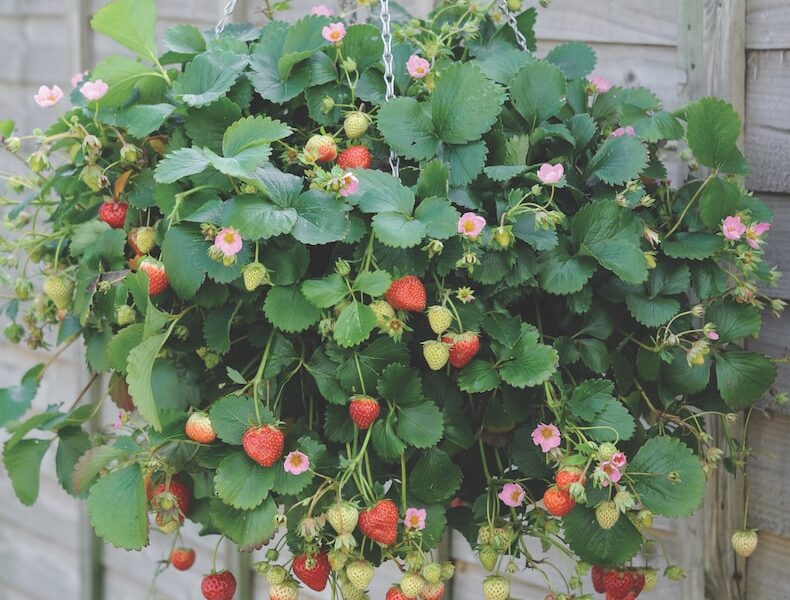While the UK may not be known for its tropical climate, that doesn’t mean you can’t bring a taste of the exotic to your garden. With the right selection of exotic fruit trees, you can cultivate unique and delicious fruits that thrive in the British climate. In a recent interview with CRJFruitTrees experts, we explored the popularity of exotic fruit trees in the UK and discovered the most sought-after variety for British gardeners. Join us as we embark on a journey to discover the extraordinary world of exotic fruit trees that can be grown in UK gardens.
The Most Popular Exotic Fruit Tree in the UK
According to CRJFruitTrees experts, one of the most popular exotic fruit trees among British gardeners is the Fig tree. Although figs are not native to the UK, they have found a special place in the hearts and gardens of fruit enthusiasts. With their luscious, sweet fruit and attractive foliage, fig trees add a touch of Mediterranean charm to UK gardens.
The popularity of fig trees can be attributed to their adaptability and ability to thrive in the UK’s climate. With the right care and positioning, fig trees can be successfully grown in both outdoor and container gardens. The warmth-loving nature of fig trees makes them ideal for sun-drenched spots against a south-facing wall or in a protected corner of the garden.
Furthermore, fig trees are known for their high yield and extended fruiting season. British gardeners can enjoy an abundance of figs from late summer to early autumn, savoring their sweet, honey-like flavor. The versatility of figs also adds to their appeal, as they can be enjoyed fresh, dried, or used in a variety of culinary creations, from jams and chutneys to desserts and salads.
Now, let’s explore some other extraordinary exotic fruit trees that you can grow in UK gardens:
Pomegranate Tree (Punica granatum):
The pomegranate tree is a stunning addition to any garden, with its vibrant red-orange flowers and ornamental fruit. While pomegranates are traditionally associated with warmer climates, certain varieties are suitable for UK gardens. Look for cold-hardy varieties such as ‘Provence’ or ‘Salavatski’ that can withstand the British winters.
Pomegranate trees require well-drained soil and a sunny, sheltered position. With proper care and protection during colder months, these trees can produce an abundance of juicy, ruby-red arils that are packed with antioxidants. The unique flavor and tartness of pomegranate arils make them a delightful addition to salads, desserts, and even as a garnish for cocktails.
Kiwi Fruit Tree (Actinidia deliciosa):
While kiwi fruit may seem like a fruit better suited to warmer climates, certain hardy varieties have been bred specifically for UK gardens. The kiwi fruit tree, with its lush green foliage and tangy, vitamin-rich fruits, can be a captivating addition to your garden.
Choose self-fertile varieties such as ‘Jenny’ or ‘Issai’ for easy cultivation and reliable fruiting. Kiwi fruit trees require a sunny spot and well-drained soil, preferably with a sheltered position to protect them from strong winds. With proper support and pruning, the twining vines of the kiwi fruit tree can bear an abundance of fuzzy, nutrient-rich fruits that are packed with vitamin C and dietary fiber.
Apricot Tree (Prunus armeniaca):
Although apricots may not be considered traditional British fruits, certain apricot tree varieties have been bred for UK gardens. Apricot trees can bring a touch of elegance to your garden with their delicate pink and white blossoms in early spring. A more classic choice can be plums, which can be found here https://www.fruit-trees.com/buy-victoria-dwarf-pixy-plum-online.html.
Choose early-flowering varieties such as ‘Tomcot’ or ‘Moorpark’ for reliable fruiting in the UK. Apricot trees require a sunny and sheltered position to encourage fruit set and protect them from late frosts. The flavorful and aromatic apricots, with their tender flesh and sweet taste, can be enjoyed fresh, used in jams and preserves, or added to savory dishes for a touch of natural sweetness.
Citrus Trees (Citrus spp.):
While citrus trees are typically associated with warm Mediterranean climates, certain hardy varieties can be grown in the UK, particularly in sheltered microclimates or in containers that can be moved indoors during winter. Varieties such as ‘Kumquat’, ‘Yuzu’, or ‘Dwarf Meyer Lemon’ are known for their cold tolerance and are popular choices among UK gardeners seeking a taste of the exotic.
Citrus trees require a sunny position and well-drained soil. They can be grown in containers, allowing flexibility in terms of positioning and overwintering. The vibrant fruits of citrus trees, from zesty lemons and oranges to tangy kumquats and aromatic yuzus, can add a burst of flavor to your culinary creations and infuse your garden with their delightful fragrance.
Conclusion:
Embracing the cultivation of exotic fruit trees in UK gardens opens up a world of unique flavors, enticing aromas, and stunning visual appeal. Whether you choose the popularity of the fig tree, the vibrancy of pomegranates, the tanginess of kiwi fruits, the elegance of apricots, or the refreshing zest of citrus fruits, these extraordinary fruit trees can thrive in the British climate with proper care and attention.
By growing exotic fruit trees in your garden, you not only expand your palate but also add beauty and interest to your outdoor space. The rewards of homegrown exotic fruits, from figs and pomegranates to kiwis, apricots, and citrus, are truly worth the effort. So, embark on a tropical adventure right in your own backyard and experience the joy of cultivating extraordinary fruits that will delight your senses and create lasting memories.








